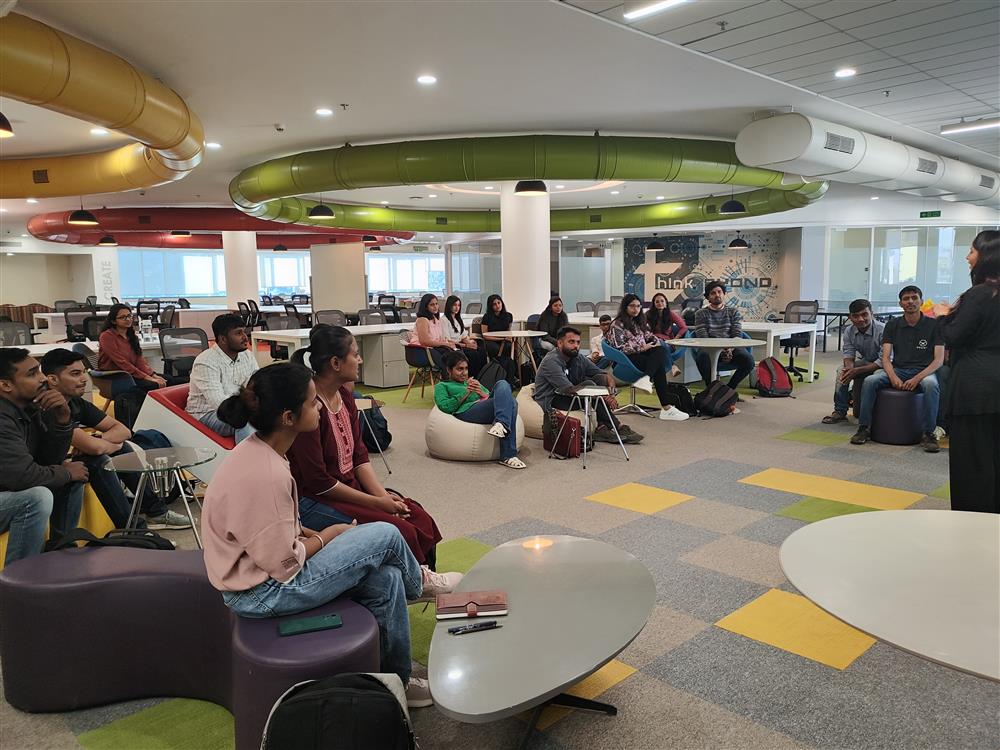Pre-incubator supporting social innovation and entrepreneurship in assistive technology
- Solution
- Digital Impact Square (DISQ)
- Country of Implementation
- India
- Start Year
- 2016
- First published
- 03.12.2023

Solution details
“DISQ nurtures Indian youth to address complex social challenges with an entrepreneurial spirit." ” Sameer Rawal, Founding Member and Impact Innovation Coach – Assistive Technologies, Digital Impact Square
Digital Impact Square (DISQ) is an incubation programme for start-ups in the field of Assistive Technology (AT), run by Tata Consultancy Services Foundation – part of a leading Indian IT-consultancy group and located in Nashik, Maharashtra. DISQ provides skill-building, mentoring, and a seed fund to support young innovators with their start-ups. DISQ focuses on various thematic areas, including AT for persons with disabilities. By 2023 DISQ supported eight start-ups, with DISQ estimating that the lives of over 100,000 persons with disabilities and their caregivers have been improved.
Problems Targeted
Early-stage start-ups working on innovative AT often struggle to become viable due to lack of mentoring, validation, and financial support.
Solution, Innovation and Impact
The DISQ Innovation Centre at Nashik is designed to encourage creative thinking. Its layout enables innovators to interact with each other freely and to develop an open culture of innovation. The centre can accommodate up to 100 innovators and is equipped with state-of-the-art facilities, including a maker space, break-out rooms, video conference rooms, and a recreational space for indoor games. It is highly accessible for persons with disabilities and is open and accessible day and night. Besides a physical infrastructure, DISQ provides mentoring, coaching, access to ecosystems specific to their challenges, and a seed fund, usually paid as a monthly stipend. The Impact Innovation Framework created by DISQ has enabled one in four start-ups to succeed and become financially sustainable, a very high percentage when compared to the average success ratio of three in 100. One example of a successful starts is KIBO (developed by Trestle Labs), a global reading and learning platform that translates any printed text, including handwriting, into audio formats and is already deployed in 20+ countries. Another is Kidaura, a screening tool for early detection of risk of autism or related cognitive impairments, currently deployed in four countries. Yet another is Dextroware Devices, a hardware device that enables hands-free operation of computers and smartphones, which has buyers from India, Thailand, and the United States.
Funding, Outlook and Transferability
The DISQ Initiative is funded by the TCS Foundation through the creation of a physical facility at Nashik, India, as well as providing financial support to all the innovators in the form of monthly stipends. DISQ aims to scale its impact through innovation programmes across multiple cities in India in a collaboration-driven framework with its various partners. The model has already been adopted by Petronas Inc, Malaysia, for its social entrepreneurship incubation programme, called SEED Labs. (Awardee 2024)
Media
Pictures
Related information
- Connections
- 1
-
People